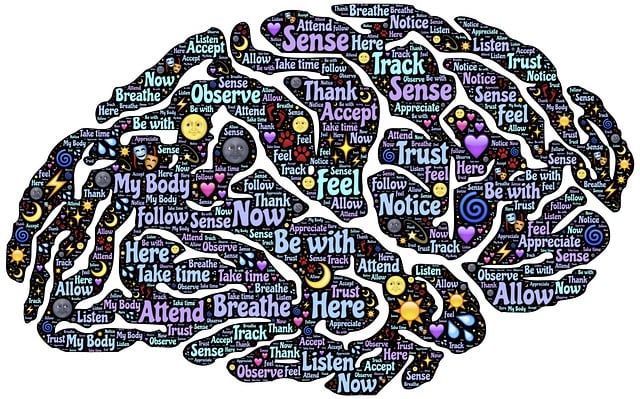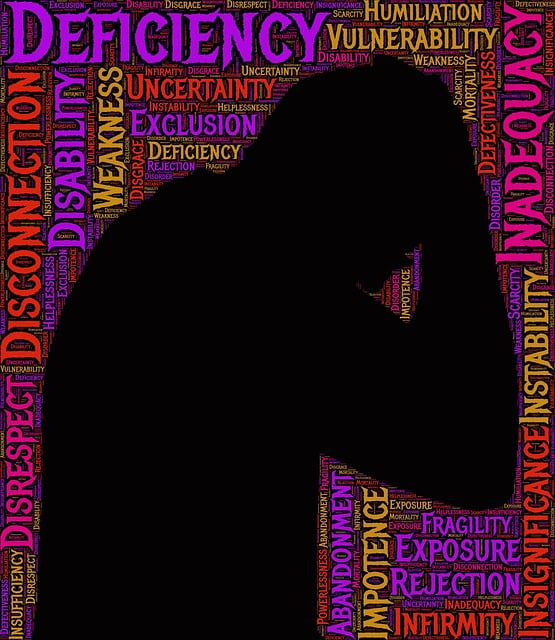Louisville Codependency Therapy (LCT) emphasizes resilience as a cornerstone of mental health, utilizing the RFM model (Resilience, Flexibility, Mastery). This holistic approach breaks down resilience into three key components, empowering individuals to cope with stress, adversity, and trauma. By promoting flexibility and mastery skills, LCT helps clients overcome codependency issues and integrate healthy coping mechanisms. Tailored Mental Wellness Coaching Programs, incorporating mindfulness exercises and self-awareness practices, enhance long-term resilience. Success in LCT is measured through clear goals, participant feedback, and adaptive strategies, fostering a supportive environment for emotional healing and improved life satisfaction.
In Louisville, codependency therapy is transforming lives by empowering individuals to build resilience. This article delves into the power of RFM (Resourcefulness, Flexibility, and Mastery), a framework crucial for fostering adaptability in the face of life’s challenges. We explore how identifying codependency patterns in clinical settings guides the design of tailored exercises aimed at strengthening resilience. Through practical implementation strategies, healthcare professionals can help clients navigate their struggles effectively, measuring success along the way to optimize therapeutic outcomes in Louisville codependency therapy.
- Understanding RFM and its Role in Resilience Building
- Identifying Codependency Patterns in Louisville Therapy Settings
- Designing Effective Exercises for Strengthening Resilience
- Implementing RFM Techniques in a Clinical Setting
- Measuring Success and Adjusting Strategies for Optimal Results
Understanding RFM and its Role in Resilience Building

Resilience is a crucial aspect of mental health, enabling individuals to navigate life’s challenges and setbacks with adaptability and bounce-back strength. RFM (Resilience, Flexibility, and Mastery) is a powerful framework that has gained prominence in Louisville Codependency Therapy and beyond. It offers a structured approach to building resilience, focusing on three key components: resilience, flexibility, and mastery. This holistic method empowers individuals to cope with stress, adversity, and trauma more effectively, fostering mental wellness and personal growth.
The RFM model is particularly relevant in the context of Self-Esteem Improvement and Mental Health Policy Analysis and Advocacy. By promoting flexibility, individuals learn to adapt to changing circumstances, reducing the impact of stressors. Mastery skills encourage a sense of control and competence, which is vital for overcoming codependency issues. Moreover, Louisville Codependency Therapy professionals can utilize RFM principles in developing Mental Wellness Coaching Programs, tailoring strategies to meet individual needs and enhancing long-term resilience.
Identifying Codependency Patterns in Louisville Therapy Settings

In Louisville therapy settings, identifying codependency patterns is a critical aspect of comprehensive mental health care. Codependency, often seen in individuals with a history of trauma, manifests as unhealthy relationships characterized by an imbalance of power and emotional reliance. Therapists in Louisville play a pivotal role in recognizing these patterns, which are often subtle yet deeply ingrained. By implementing exercises that foster mindfulness and self-awareness—key components of Mind Over Matter principles—professionals can help clients break free from codependent behaviors.
This process involves not only addressing the symptoms but also delving into the root causes, such as unprocessed trauma. Effective Louisville codependency therapy incorporates burnout prevention strategies for healthcare providers, ensuring therapists remain equipped to offer consistent support. Through tailored interventions, therapists facilitate personal growth, empowering individuals to form healthier relationships and develop resilience, ultimately enhancing their overall well-being.
Designing Effective Exercises for Strengthening Resilience

When designing resilience-building exercises, it’s crucial to consider the specific needs and challenges faced by individuals seeking Louisville Codependency Therapy. Effective sessions should be tailored to foster self-awareness and provide tools for managing stress and emotional turmoil. Incorporating practices like Mental Wellness Journaling Exercise Guidance can offer a safe space for participants to explore their thoughts and feelings, enhancing their ability to navigate difficult situations.
The exercises should promote healthy coping mechanisms and Self-Care Routine Development for Better Mental Health. Through Emotional Healing Processes, individuals learn to recognize and process their emotions constructively, building a resilient mindset. These strategies empower them to face challenges head-on, fostering a sense of control and well-being that extends beyond therapy sessions.
Implementing RFM Techniques in a Clinical Setting

Implementing RFM (Resilience, Flexibility, and Mindfulness) techniques in a clinical setting offers a transformative approach to Louisville Codependency Therapy. These evidence-based practices aim to strengthen patients’ inner resilience by fostering emotional flexibility and cultivating mindfulness skills. Through structured exercises designed to enhance self-awareness and coping mechanisms, clients can develop a deeper understanding of their thoughts and emotions, thereby improving their ability to navigate life’s challenges.
By integrating RFM into therapy sessions, mental health professionals in Louisville can promote Mental Health Awareness and encourage Positive Thinking. The focus on building inner strength prepares individuals for real-world situations, equipping them with the tools to manage stress, anxiety, and potential setbacks. This holistic approach not only facilitates healing but also empowers clients to lead more balanced and fulfilling lives.
Measuring Success and Adjusting Strategies for Optimal Results

Measuring success is a critical component of any effective therapy or resilience-building program, such as Louisville Codependency Therapy (LCT). By setting clear goals and metrics, therapists can assess the impact of exercises like Compassion Cultivation Practices on clients’ well-being. This involves tracking improvements in areas like stress reduction, emotional regulation, and overall life satisfaction. Regular feedback from participants is invaluable; their experiences offer insights into what’s working and what needs adjustment.
For optimal results, LCT should be flexible and adaptive. If certain strategies aren’t yielding the desired effects, therapists can pivot and explore alternative approaches. For instance, if Burnout Prevention Strategies for Healthcare Providers prove challenging, techniques focusing on self-care and stress management could be enhanced or replaced with activities that better suit the needs of the group. Ultimately, the goal is to create a supportive environment where individuals feel empowered to manage their anxiety relief and build lasting resilience.
The implementation of RFM (Resilience, Flexibility, and Mastery) techniques in Louisville codependency therapy has proven to be a powerful tool for enhancing clients’ resilience. By focusing on these key aspects, therapists can help individuals develop effective coping strategies, improve their emotional well-being, and lead more fulfilling lives. Through structured exercises and careful measurement of progress, RFM becomes a dynamic process that adapts to each client’s unique needs, ultimately fostering long-lasting positive change in Louisville codependency therapy settings.














